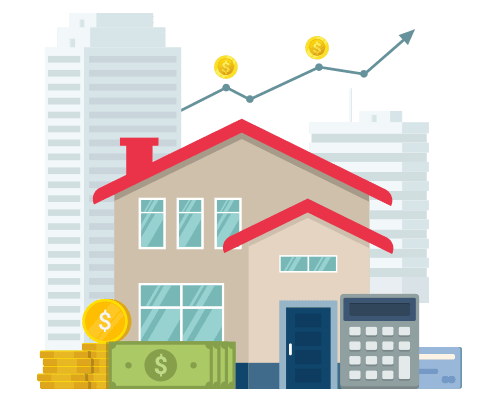Learn the key differences between FHA and conventional loans so you can choose the mortgage that aligns with your credit, income, and long-term goals.
Verify Your Affordable Home Loan Eligibility
An FHA loan is a mortgage insured by the Federal Housing Administration.
It's designed to make homeownership more accessible, especially for first-time buyers or those with less-than-perfect credit.
Down payments as low as 3.5% with a credit score of 580 or higher.
Flexible debt-to-income (DTI) ratio limits.
Lenient underwriting standards compared to conventional loans.
Requires both upfront and ongoing mortgage insurance premiums (MIP).
Buyers with limited savings.
Applicants with lower credit scores.
Individuals who may not qualify for a conventional mortgage due to income or past credit events.
A conventional loan is not backed by the government. These loans conform to standards set by Fannie Mae and Freddie Mac and are offered by private lenders.
Down payments can be as low as 3% for qualified first-time buyers.
Mortgage insurance required if down payment is less than 20%, but it can be removed once 20% equity is reached.
Stricter credit and income requirements.
More flexibility in property types, including second homes and investment properties.
Buyers with good to excellent credit.
Those with stable income and employment history.
Buyers looking to avoid long-term mortgage insurance.
| Feature | FHA Loan | Conventional Loan |
|---|---|---|
| Minimum Down Payment | 3.5% | 3%–5% (for first-time buyers) |
| Credit Score Requirement | 580 (or 500 with 10% down) | 620 or higher |
| Mortgage Insurance | Required for the life of the loan | Required if <20% down, cancellable later |
| Debt-to-Income Ratio | Up to 57% in some cases | Typically capped at 45% |
| Loan Limits | Varies by county, often lower | Higher limits in many areas |
| Property Eligibility | Owner-occupied primary residences only | Owner-occupied, second homes, investments |
| Appraisal Standards | Strict (FHA-specific guidelines) | More flexible |
| Gift Funds for Down Payment | 100% allowed | Allowed but with restrictions |
| Seller-Paid Closing Costs | Up to 6% of the purchase price | Typically capped at 3% |
Best Option: FHA Loan — Easier to qualify and more flexible with DTI.
Best Option: Conventional Loan — Strong credit makes it possible to remove PMI quickly.
Best Option: FHA Loan — Allows multi-family homes up to 4 units if owner-occupied.
Best Option: Conventional Loan — FHA doesn’t allow non-primary residence purchases.
Yes, you may qualify for both. A mortgage advisor can help you compare options based on your profile.
Absolutely. Many buyers start with an FHA loan and refinance into a conventional loan when their credit and equity improve.
Not necessarily. FHA loans may require extra time due to stricter appraisal standards, but both can close in 30 days or less.
Not always. FHA loans often have lower rates than conventional loans for borrowers with lower credit scores.
We don’t just offer loans—we guide you through the process with honesty, expertise, and a commitment to your success. Here’s what sets us apart:
Straightforward Comparisons: We break down complex loan options into simple, side-by-side terms you can understand.
No Pushy Sales Tactics: We’re here to advise, not pressure.
Fast Pre-Qualification: Know where you stand within minutes—without a hard credit pull.
Experienced Loan Advisors: Our team has helped thousands of buyers like you navigate their first (or fifth) home purchase.
Whether you’re just starting your home search or ready to lock in your rate, we’re here to help.